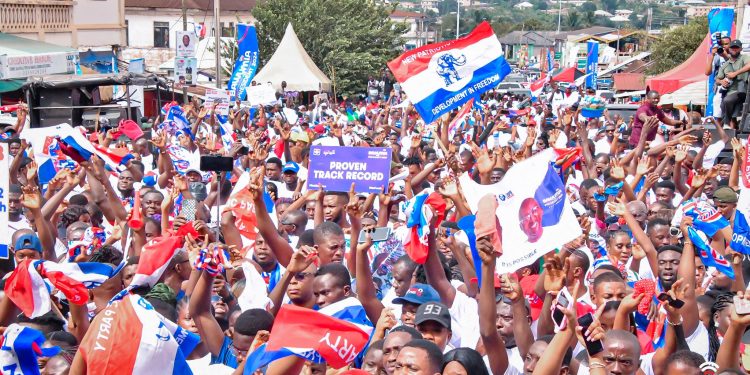Inside the NPP’s Delegates Conference: Reform, Friction, and the Politics of Clarity
On a sunlit Saturday at the University of Ghana Stadium, over 5,500 delegates of the New Patriotic Party (NPP) gathered under the banner “Rebuilding Together with Our Values.”
Fifty-nine (59) motions to amend various provisions in the NPP Constitution, especially those on polling station, constituency, external, regional and national organisations were on high stakes at the conference. In the end, two of the motions were rejected: motion 17 to empower individuals other than polling station, electoral area and constituency officers to supervise polling station and electoral area elections; and motion 54 to redefine ‘youth’ to conform to global age benchmarks (15-35 years) instead of the age limit of 40 years provided in the constitution. Aside from the usual recalibration and much talked about expansion of the electoral college, there are four key amendments that begged critical concerns in need of resolve and clarity.
Motion 10: Ending Dual Roles without a Replacement Roadmap
The proposal to bar any sitting party officer who enters government from retaining their party post aims to eliminate conflicts of interest. Yet it offers no guidance on how or when those vacancies are filled. Articles 10(2)(7)(b), 9(27)(e), and 7(29)(e) of the NPP Constitution prescribe election mechanisms for vacancies—but cross-referencing an evolving constitution invites ambiguity. Analysis shows that without a clear trigger and timeline, a vacated position could remain unfilled for months, leaving critical seats dormant. A more robust approach would be to propose that:
Upon appointment to public office, the officer shall vacate their party position within 14 days, and a by-election must be convened at the next tier-level meeting in accordance with the relevant article.
This ensures both a definite handover date and a guaranteed pathway to replacement.
Motion 39: Excluding the President from the Steering Committee
By amending Article 10(10) to remove the sitting President from the National Steering Committee, the party hopes to curb executive overreach. Yet what happens when that President is also the party’s presidential candidate? Will he or she be a member of the committee in the capacity as presidential candidate or be ousted from the very forum charged with crafting his or her campaign strategy. In practice, this could sideline the President’s voice at a critical juncture.
A more surgical amendment should consider this:
The sitting President shall serve on the Steering Committee in ex-officio, non-voting capacity when also serving as party flag-bearer.
This preserves institutional checks and balances while allowing the President to contribute strategic insight without wielding undue voting power.
Motions 43 & 46: Resignation Timelines for Parliamentary and Presidential Aspirants
Requiring ministers, CEOs of public corporations, and other appointees to resign 12 months (parliamentary) or 24 months (presidential) before elections is intended to level the playing field. But it omits regional and constituency officers, and fails to define the trigger—does “file to contest” mean publicly declaring intent, or the actual submission of nomination forms? Aspirants could exploit this ambiguity to remain in office until the eleventh hour. Moreover, first-term Presidents and Vice-Presidents face no similar obligation, perpetuating an incumbent advantage.








